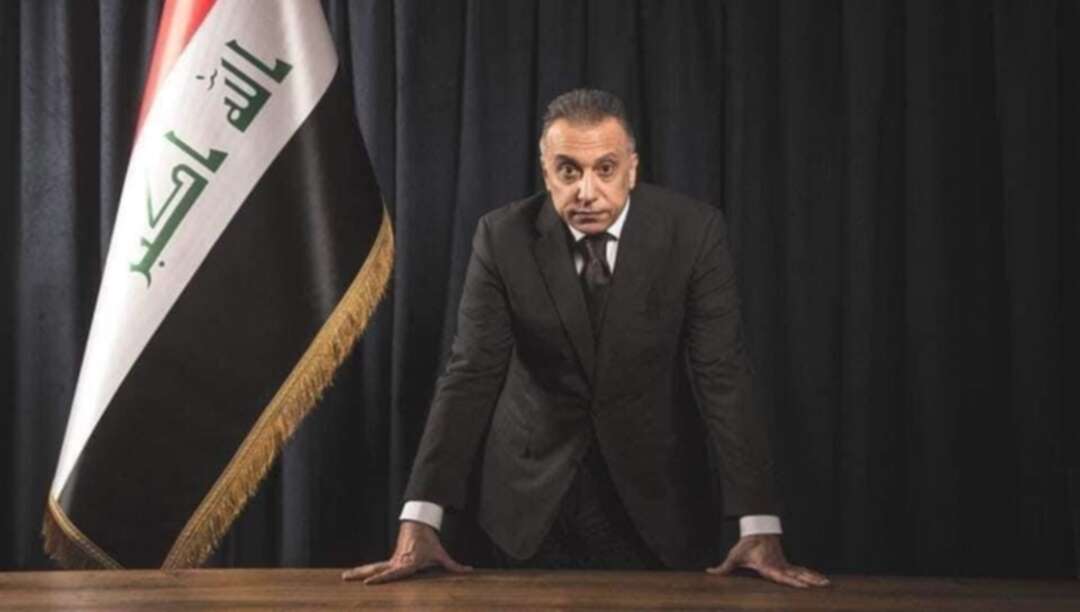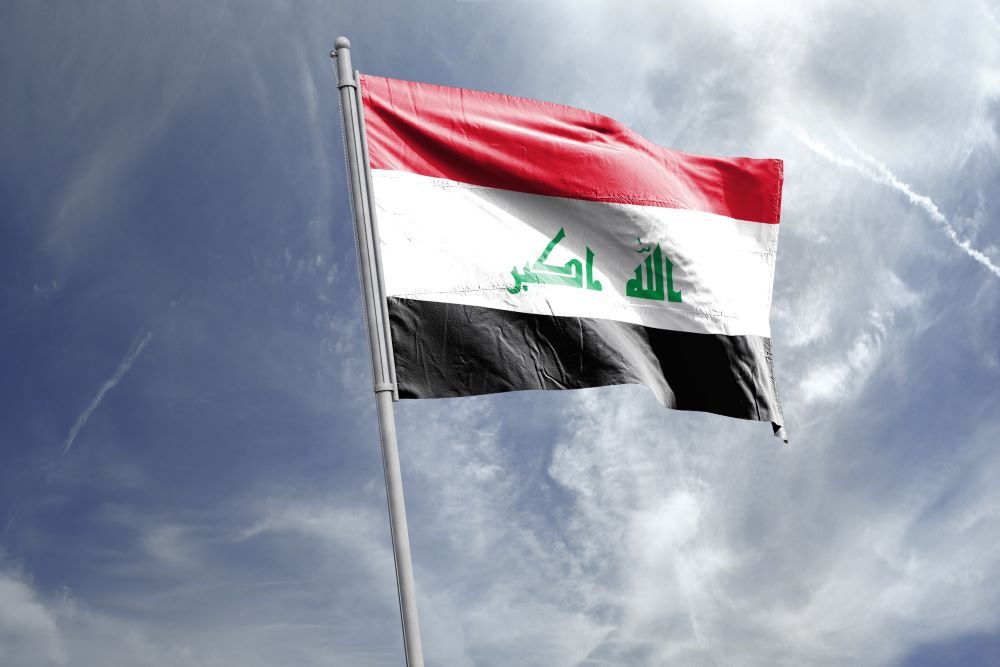-
Who was behind the drone attack on the Iraqi Prime Minister's residence?

Looking at Prime Minister Mustafa Kadhimi's record in this position in his 18 months as Iraq's prime minister and the results of the recent Iraqi elections may bring us closer to answering this question.
Al-Kadhimi who has dual British and Iraqi citizenship, returned to Iraq after the US occupation of Iraq and pursued his political career. He did not become a member of any of Iraq's political parties and was politically active as an independent. Al-Kadhimi after Shahwani became the head of Iraqi intelligence, which was under US control. During this time, he sought to maintain his independence while establishing ties with other Shiite parties and groups, most of which were under the influence of the Iranian regime.
After the October 2019 nationwide protests in Iraq, which led to the resignation of then Prime Minister Adel Abdul Mahdi, Iraq entered into chaos and political instability. After much negotiations and political maneuvering by all parties, including Iran, the US, and the Iraqi political parties, Mustafa Al-Kadhimi, who was the main contender for the post of Prime Ministerial candidate, was finally elected on May 7, 2020, with the consent of the parliamentary majority. As prime minister, his goal was to restore the independence of the Iraqi government and take the country out of Iran's control and influence. He managed to establish friendly relations with other Arab countries that did not have friendly relations with the Iranian regime, such as Saudi Arabia and the United Arab Emirates. In his efforts, Mustafa Kazemi won the consent of these countries to invest in Iraq. This made the Iranian officials quite unhappy and dismayed. He added to Iraq's prestige by holding an important summit in Baghdad, which French President Emmanuel Macron also attended.
Al-Kadhimi also sought to strike a balance in his foreign policy by mediating between Iran and Saudi Arabia and providing a platform for talks between the two sides in Baghdad. Khamenei, who was counting on one of his Iraqi loyalists to become the next Prime Minister of Iraq, played a dual game with Mustafa Kazemi. At times, Khamenei supported Kazemi and, other times opposed him.
In an unprecedented turn of events, in Iraq's recent election, contrary to Tehran's expectations, pro-Iranian parties and groups did not do well at all. Muqtada al-Sadr, the leader of the Sairon coalition, came out on top with 73 seats. Although Muqtada al-Sadr is a Shiite cleric, he has tried to distance himself from Khamenei. Recently, it has twice rejected the invitation of the Islamic Republic to travel to Iran.

After the election results became clear and revealed that Tehran's affiliated political parties and groups failed to win a majority, these groups, led by Hadi Ameri, rejected the election results and claimed election fraud. To escalate the situation, on November 5, 2021, Iran's proxy groups, including "Hashd -Al -Shabi" and "Kataeb-Hezbollah," gathered at the Green Zone entrance in Baghdad, tried to enter the Green Zone, where most of the government offices are located. Government security forces confronted them. According to the videos posted on social media, the protesters were throwing stones at the security forces at the "Green Zone" entrances, and the security forces used tear gas to disperse them. It is reported that 125 people were injured in the confrontation, and several social networks reported that two people were killed. This was not confirmed by official sources. Muqtada al-Sadr later called this Hash-Al-Shaabi’s action “ugly.”
Of course, this was not the first time that members of Iranian-backed groups have clashed with Iraqi security officials. The clashes escalated after the death sentences were handed to two members of "Kataeb-Hezbollah," who were charged for killing protesters and opponents of Iranian influence in Iraq. On November 1 and 2, a court in the city of Basra sentenced two members of "Kataeb-Hezbollah" to death. They were involved in the assassination of several Iraqi protesters and journalists over the past two years.
It is noteworthy that this is the first time that a court in Iraq has tried and sentenced members of "Kataeb-Hezbollah," one of the most influential groups affiliated to Iran's IRGC's Quds Force to death. The case has been appealed, and the sentence may not materialize. However, the issuance of such sentences in the important city of Basra indicates the amount of hatred the people of Iraq have against the Iran-backed proxy groups in Iraq. This turn of events has just one message: Iran's influence in Iraq is dwindling and becoming weaker and weaker, especially in the southern regions of the country.
Mustafa al-Kazemi, Iran's prime minister, called the ruling "a very important step in restoring the rule of law in Iraq."
The results of the recent elections were, in fact, a wake-up call for Khamenei and its influence in Iraq. The closest Iranian-affiliated groups, which held 48 seats in the previous parliament, won only 17 seats in the new election.
The winner of this election was undoubtedly the coalition of "Sairon" and Muqtada Al-Sadr, which was able to send 73 representatives to the new parliament. Muqtada Al-Sadr has recently begun talks with other parties to form a future government. After the election, Khamenei invited Muqtada Al-Sadr to Tehran, intended to persuade Sadr to agree on the formation of a coalition with pro-Iran political parties and groups because he feared that the Fatah coalition, led by Hadi al-Amiri, who had officially declared allegiance to him, would have no role in the next government. However, Sadr did not accept Khamenei's invitation to go to Tehran.
Khamenei's envoy to Baghdad is said to have warned Muqtada Al-Sadr that this could lead to a civil war in Iraq if the next government does not include the "Fatah" coalition.
Since Sadr himself is not able to take the post of Prime Minister, he has two choices:
· To form a government with the presence of all Shiite forces that have a close relationship with the Islamic Republic, as all governments came into power in 2003.
· To launch an all-inclusive coalition of 40 independent representatives, representatives of Kurdish parties, and representatives of non-religious and Sunni groups opposed to Iran.
If Muqtada Al-Sadr chooses the latter option, Mustafa Al-Kadhimi's chances of regaining the post of prime minister will be high. The recent drone strike on Mustafa Al-Kadhimi's residence could be interpreted as a hostile act by the pro-Iran proxies and show their dissatisfaction with the whole process.
It is worth noting that only proxy forces affiliated with Iran are equipped with drone capabilities. They actually showcased it in a recent parade at Camp Ashraf (the then headquarter of the People's Mojahedin of Iran (MEK), which the Quds Force now occupies), near the city of Khalis.
It is clear that in the event of the re-election of Al-Kadhimi, who also enjoys US support, Iran's influence in Iraq will be significantly reduced. And, of course, the effect of this will not only be in Iraq, but will quickly spread to other countries, including Syria and Lebanon, and this is something that Khamenei is most afraid of, and as a result, it can motivate him to do anything to make sure this scenario will not materialize.
According to a tweet from Hamdi Malik of the Washington Institute, Qais Al-Khazali, the leader of the Kata’ib Hezbollah group, had threatened Kazemi before. Addressing Kazemi among the members of his paramilitary group, he said: "We will never give up the blood of Abu Mahdi (Al-Muhandis) and Haj Qasim (Soleimani)."
Interestingly enough while almost all world leaders condemned the drone attack on Kazemi's house, some Iranian media outlets, such as the IRNA news agency, called the attack suspicious and tried to portray it in a way that was in Al-Kadhimi's interests!
by: Cyrus Yaqubi
Cyrus Yaqubi is a Research Analyst and Iranian Foreign Affairs Commentator investigating the social issues and economy of the Middle East countries in general and Iran in particular.
You May Also Like
Popular Posts
Caricature
BENEFIT Sponsors BuildHer...
- April 23, 2025
BENEFIT, the Kingdom’s innovator and leading company in Fintech and electronic financial transactions service, has sponsored the BuildHer CityHack 2025 Hackathon, a two-day event spearheaded by the College of Engineering and Technology at the Royal University for Women (RUW).
Aimed at secondary school students, the event brought together a distinguished group of academic professionals and technology experts to mentor and inspire young participants.
More than 100 high school students from across the Kingdom of Bahrain took part in the hackathon, which featured an intensive programme of training workshops and hands-on sessions. These activities were tailored to enhance participants’ critical thinking, collaborative problem-solving, and team-building capabilities, while also encouraging the development of practical and sustainable solutions to contemporary challenges using modern technological tools.
BENEFIT’s Chief Executive Mr. Abdulwahed AlJanahi, commented: “Our support for this educational hackathon reflects our long-term strategic vision to nurture the talents of emerging national youth and empower the next generation of accomplished female leaders in technology. By fostering creativity and innovation, we aim to contribute meaningfully to Bahrain’s comprehensive development goals and align with the aspirations outlined in the Kingdom’s Vision 2030—an ambition in which BENEFIT plays a central role.”
Professor Riyadh Yousif Hamzah, President of the Royal University for Women, commented: “This initiative reflects our commitment to advancing women in STEM fields. We're cultivating a generation of creative, solution-driven female leaders who will drive national development. Our partnership with BENEFIT exemplifies the powerful synergy between academia and private sector in supporting educational innovation.”
Hanan Abdulla Hasan, Senior Manager, PR & Communication at BENEFIT, said: “We are honoured to collaborate with RUW in supporting this remarkable technology-focused event. It highlights our commitment to social responsibility, and our ongoing efforts to enhance the digital and innovation capabilities of young Bahraini women and foster their ability to harness technological tools in the service of a smarter, more sustainable future.”
For his part, Dr. Humam ElAgha, Acting Dean of the College of Engineering and Technology at the University, said: “BuildHer CityHack 2025 embodies our hands-on approach to education. By tackling real-world problems through creative thinking and sustainable solutions, we're preparing women to thrive in the knowledge economy – a cornerstone of the University's vision.”
opinion
Report
ads
Newsletter
Subscribe to our mailing list to get the new updates!






















